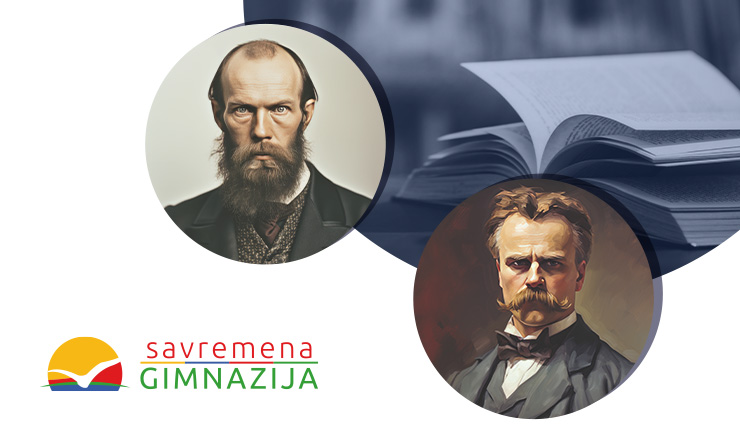
The analysis of the novel "Crime and Punishment" by the great Russian writer Fyodor Dostoevsky provided an excellent opportunity to design an interdisciplinary class for fourth-grade students. Philosophy teacher Marica Djuric and Serbian language and literature teacher Zorana Putnikovic joined forces to explain the concepts of the Übermensch (overman) and the ordinary man, shedding light on the inner turmoil of the main character, Raskolnikov, from all perspectives.

The universality of the Übermensch and ordinary man concepts: From Dostoevsky and Nietzsche, through psychological experiments, to current series and movies
Students actively participated in the discussion that arose during the class, pointing out the characteristics of the Übermensch and ordinary man in this literary character. For a complete understanding of Raskolnikov, it was necessary to confront the value systems of Nietzsche and Dostoevsky, but the story did not end there. The students recognized the universality of these two concepts in current series and movies ("Last of Us," "Society of Snow"), as well as in historical events in the past and psychological experiments such as Milgram's. This serves as sufficient evidence that they understood the purpose of the class and successfully applied the knowledge they gained.

















